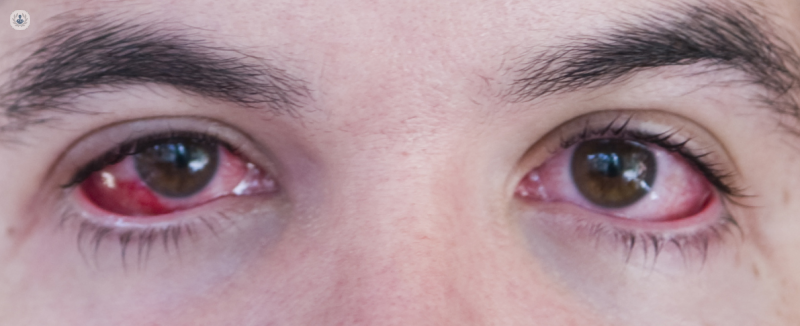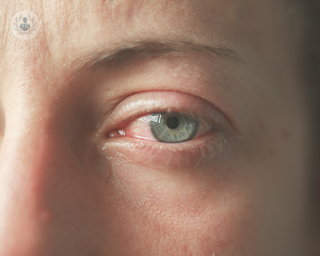Allergic conjunctivitis
Mr Imran Jawaid - Ophthalmology
Created on: 11-13-2012
Updated on: 10-02-2023
Edited by: Conor Dunworth

What is allergic conjunctivitis?
Allergic conjunctivitis causes red, watery, itchy or gritty eyes and is a reaction to pollen during hay fever season. Other causes include allergies to house dust mite and cosmetic products. The irritating symptoms of the condition can usually ease with eye drops.
Conjunctivitis is the inflammation of the conjunctiva, which is the thin skin that covers the white part of the eyes and the inside of eyelids. It consists of layers of specially adapted see-through cells.
What causes allergic conjunctivitis?
Some of the substances that cause allergic conjunctivitis include:
- Household dust
- Pollen
- Mould
- Animal dander
- Chemical scents such as household cleaning products or perfume
What are the symptoms of allergic conjunctivitis?
The following are symptoms of allergic conjunctivitis:
- The eyes are itchy
- The skin on the inside of the eyelids looks red and sore
- The eyes feel like they are burning
- The eyelids swell
- Watery eyes
- It looks puffy around the eyes
Are there any tips for managing allergic conjunctivitis?
To manage allergic conjunctivitis at home, you should try to minimise your exposure to allergens. You can do this by keeping your windows closed when the pollen count is high, regularly cleaning your house to ensure that it is dust-free and avoid exposure to harsh chemicals and perfumes. It is important to recognise what triggers your allergies.
If you wear contact lenses, do not wear them until symptoms have cleared up. Try not to rub your eyes as this can cause more inflammation and women should avoid wearing make-up. It is recommended to bathe the eyes with a flannel soaked in cold water or an over-the-counter eye bath.
How is allergic conjunctivitis treated?
When it comes to treating allergic conjunctivitis, your doctor may recommend an oral or over-the-counter antihistamine as well as eye drops that are anti-inflammatory, or that contain steroids.




